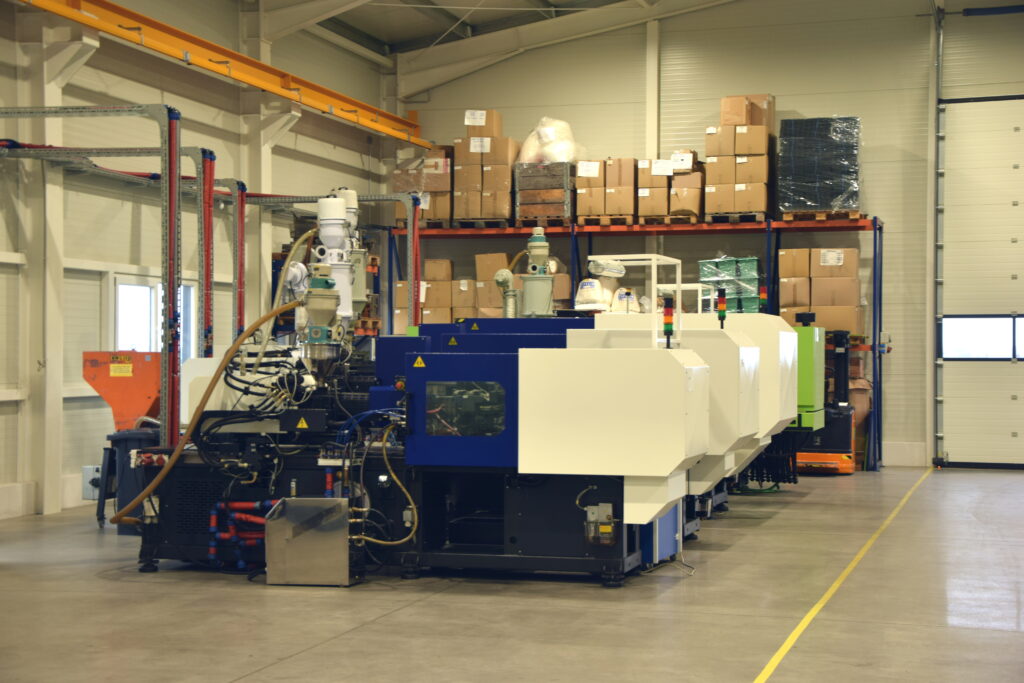
News
Why is plastic injection molding a good choice?
Article: The Advantages of Plastic Injection Molding in the Business World
Plastic injection molding is gaining increasing popularity in the industrial world, and not without reason. This manufacturing process offers a range of advantages for both manufacturers and consumers. Why is plastic injection molding a good choice? Let's take a look!
Flexibility and Versatility: Plastic injection molding allows for the quick and efficient production of highly diverse parts and products. The technology can handle a wide range of sizes and shapes, from tiny gears to larger household appliances.
Cost-Effectiveness: The plastic injection molding process results in relatively low manufacturing costs, especially for high-volume production. The raw materials are generally inexpensive, and the manufacturing process is efficient, with minimal waste.
Rapid Prototyping: Injection molding enables rapid prototyping, which can be a significant advantage during the product development process. Changes can be implemented quickly, and prototypes can be easily customized before final product production.
High-Quality End Result: Plastic injection molding yields precise and repeatable results, which is crucial in industries such as medical technology or automotive, where products must meet high-quality standards.
Environmentally Friendly Solutions: While the environmental impacts of plastics are debatable, injection molding allows for the use of sustainable materials, such as recycled plastics. Additionally, the process typically results in less waste compared to other manufacturing methods.
High Volume Production: Plastic injection molding enables high-volume production in a short amount of time, which can be critical in industries where demand is high and quick responsiveness is essential.
Lightweight and Durable Products: Plastic injection molding allows for the production of lightweight yet strong and durable products. This can be particularly advantageous in the automotive industry and other fields where material weight and resilience are important.
Overall, plastic injection molding offers numerous advantages both in industrial and consumer sectors. Due to its flexibility, efficiency, and quality, this manufacturing process is becoming increasingly widespread and sought after worldwide.

News
What is Infrared Coating Preparation?
"Infrared coating preparation," also known as GML coating (Graded Multilayer), is a specialized process used in various industries to protect and enhance surfaces. Infrared coating preparation is a technology utilized in sectors such as automotive, electronics manufacturing, and the energy industry.
The essence of infrared coating preparation is the application of a special coating onto a surface with optical properties that excellently resist light and heat radiation. GML coatings typically have a multilayered structure composed of different materials, arranged and treated with special methods.
Some of the advantages of infrared coating preparation may include:
1. **Heat Protection:** Infrared coatings are capable of absorbing or reflecting heat, thereby reducing surface temperature. This is particularly important in the automotive industry, where infrared coatings can help reduce the internal temperature of vehicles, improving comfort and reducing energy consumption associated with the use of air conditioning systems.
2. **Corrosion Protection:** Infrared coating preparation can help protect metal and other surfaces from corrosion. The layers of coatings resist various chemical and mechanical impacts, providing long-term protection against rusting.
3. **Optical Properties:** Infrared coatings allow for fine-tuning of the optical properties of materials, such as increasing or decreasing transparency, and modifying light reflection or absorption.
4. **Environmentally Friendly:** Infrared coating preparation is generally an environmentally friendly process, often involving minimal or no emission of harmful substances.
Infrared coating preparation is a versatile technology that can be beneficial in numerous industries. Whether in the automotive industry, electronics manufacturing, or construction, infrared coating preparation offers opportunities for surface protection and enhancement, as well as fine-tuning of material optical properties. This technology is continuously evolving, potentially expanding its applications even further in the future.

News
The Grand Opening of Our New Factory: A Milestone in the History of JÁSZ-TOOL TEAM Ltd.

